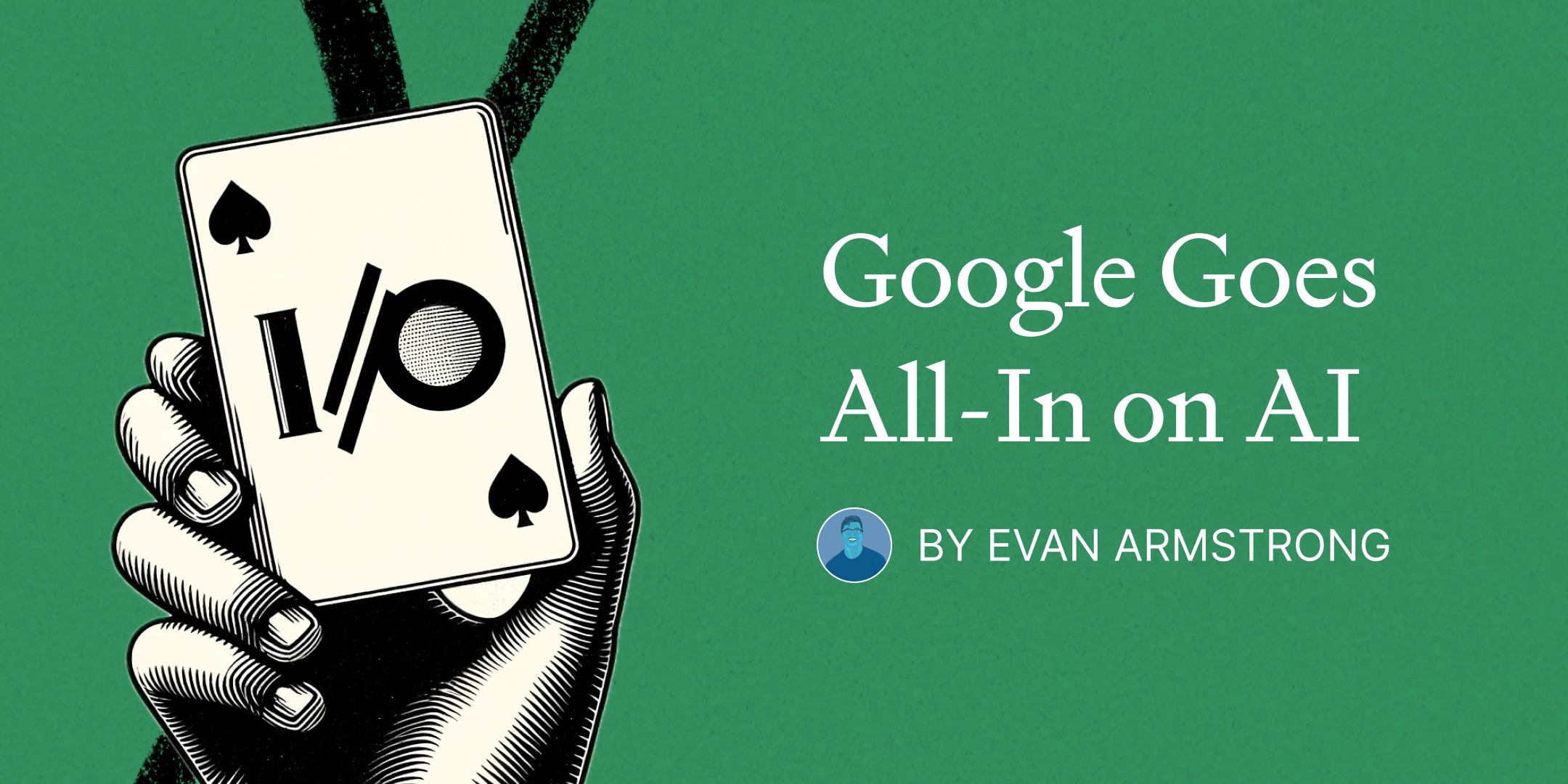Google Goes All In on AI

🌈 Abstract
The article discusses Google's focus on AI, including the company's announcements at its recent developer conference. It examines Google's efforts to transform its search engine into an "answer-and-action engine", integrate AI into its Android operating system, and embed large language models (LLMs) like Gemini across its various applications. The article also compares Google's AI strategy to that of Microsoft and OpenAI, and introduces the "rugged landscape" framework to analyze the competitive dynamics in the AI market.
🙋 Q&A
[01] Google Goes All In on AI
1. What are the key things the article says Google is focusing on with its AI efforts?
- Agentic search: Transforming Google's search engine into an "answer-and-action engine" that can understand context and perform actions on the user's behalf
- Google in Android: Integrating a virtual assistant powered by LLMs into the Android operating system
- Gemini 1.5 everywhere: Embedding the Gemini LLM model into various Google products like Sheets, Photos, and Gmail
2. What are the potential challenges and risks for Google in pursuing these AI initiatives?
- Cannibalizing its existing search engine business model, as the "Google does the googling" approach may reduce the need for traditional search ads
- Shipping AI-powered applications that don't work well, as evidenced by the author's poor experience with Gemini integrations in Gmail and Google Sheets
- The risk of Big Tech companies like Google and Microsoft becoming more like infrastructure providers rather than maintaining dominance in their core products and services
3. How does the "rugged landscape" framework help analyze the competitive dynamics in the AI market?
- The framework suggests that the AI market is not a single mountain to climb, but a rugged landscape with multiple peaks of profitability
- Companies need to navigate this dynamic landscape and identify the most promising opportunities, rather than just focusing on their current market position
- The framework argues against the sunk-cost fallacy, as what matters is not only where a company starts, but how far it wants to go in the shifting landscape
[02] The Broader AI Landscape
1. How does the article compare Google's and Microsoft's AI strategies?
- Both companies are making similar announcements and converging on similar planes of competition, with comparable technologies like multi-modal models and LLM integrations
- However, Microsoft has a different position with its partnership with OpenAI, which has had an advantage on the model front
2. What is the significance of OpenAI's release of its most powerful model before Google's announcements?
- The article suggests that this was likely a strategic move by OpenAI, as it desperately needs both network effects from consumers relying on its chatbot and a way to learn user actions on its desktop app
- Otherwise, the article argues, power will accumulate higher up in the tech stack, at the operating system or browser level, where companies like Google and Apple have an advantage
3. How does the "rugged landscape" framework apply to the broader AI market?
- The framework suggests that the AI market is not a single mountain to climb, but a landscape with multiple peaks of profitability
- Companies like Google and Microsoft may sit on top of "Everests of profit" compared to OpenAI, but that doesn't necessarily mean they are in the best position
- The key is to identify and adapt to the most promising opportunities in the shifting landscape, rather than just focusing on current market share